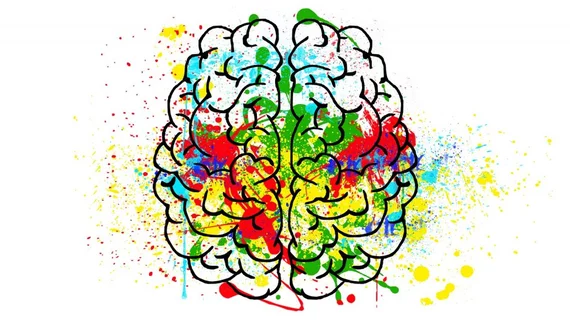AI identifies schizophrenia with 87% accuracy
Researchers at the University of Alberta have developed a new AI-based software––Ensemble Algorithm with Multiple Parcellations for Schizophrenia Prediction, or EMPaSchiz––that will allow physicians to identify schizophrenia in fMRI scans with 87 percent accuracy. Their research was published in NJP Schizophrenia.
“Schizophrenia is characterized by constellation of symptoms that might co-occur in patients,” said lead researcher Sunil Kalmady, PhD, in a prepared statement. “Two individuals with the same diagnosis might still present different symptoms. This often leads to misdiagnosis. Machine learning, in this case, is able to drive an evidence-based approach that looks at thousands of features in a brain scan to lead to an optimal prediction.”
Presently, most machine learning algorithms identify the presence of schizophrenia based on resting-state fMRI scans—and the same is true for Kalmady’s machine learning algorithm.
The difference is that Kalmady’s AI tools were trained on patients who were diagnosed with schizophrenia but were not medicated to treat their mental illness. This will allow for physicians to treat schizophrenia at an earlier stage.
Kalmady and colleagues used resting-state FMRI data collected from a cohort of 81 patients who were never treated with any psychotropic medications, including antipsychotics. Additionally, the researchers recruited 92 healthy volunteers who were matched for age and gender and screened to rule out psychiatric diagnoses. All subjects in both cohorts underwent fMRI.
“To our knowledge, EMPaSchiz is first to be reported that has been trained and validated exclusively on data from drug-naive patients diagnosed with schizophrenia,” Kalmady and colleagues wrote. “The method relies on a single modality of MRI acquisition and can be readily scaled-up without needing to rebuild parcellation maps from incoming training images.”
Post fMRI, the researchers implemented EMPaSchiz, which stacked predictions from “single-source” models based on features of regional activity and functional connectivity. Overall, the machine learning algorithm had an 87 percent accuracy rate.
Kalmady and colleagues noted their AI tool outperformed previous machine learning models, which only showed 74 percent accuracy.
Another study showed machine learning identified if a patient exhibited schizophrenia using MRI scans with 78 percent accuracy.
“The work reported here may indicate a useful step towards more biological informed diagnoses, as it involves developing algorithms to predict current psychiatric diagnoses based on objective neurobiological features,” Kalmady et al. wrote. “This approach could also provide us with a framework for evaluating the validity of clinical diagnoses.”
The researchers hope their results will also translate to other psychoses—and for prediction of treatment responses.

